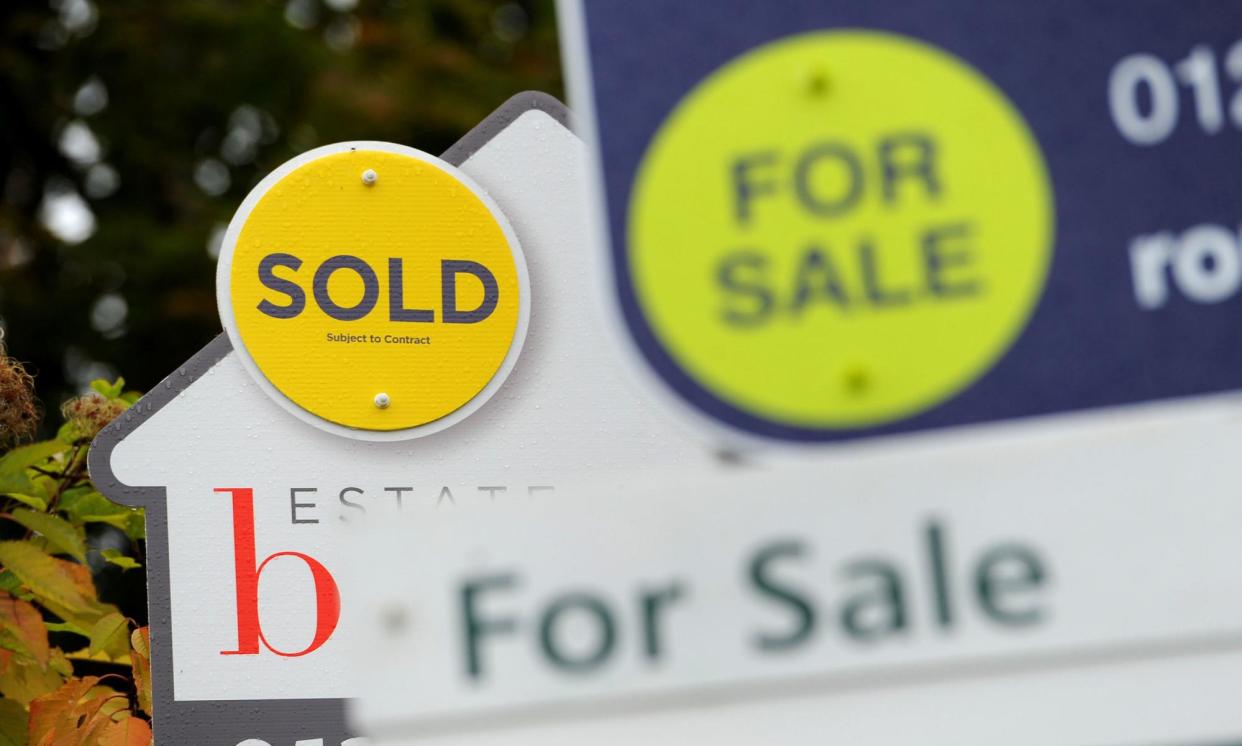Sunak pledges to keep stamp duty threshold at £425k for first-time buyers

The Conservatives would permanently scrap stamp duty on homes up to £425,000 for first-time buyers, Rishi Sunak is expected to pledge in the party’s election manifesto, in a move that would affect 200,000 households annually.
The threshold was raised from £300,000 to £425,000 in the September 2022 mini-budget as a temporary relief measure that is due to expire next March.
Related: ‘It makes moving pointless’: why stamp duty is the biggest downside to downsizing
The chancellor, Jeremy Hunt, has said the Conservatives will not increase capital gains tax, stamp duty or the number of council tax bands, or “undertake an expensive council tax revaluation”.
David Phillips, an associate director at the Institute for Fiscal Studies (IFS), has previously called for the abolition of stamp duty, saying: “It is one of the most economically damaging taxes levied by the government, significantly increasing the cost of moving and gumming up both the housing and labour market.”
The threshold pledge, reported in the Telegraph, is the latest policy to be trailed before the Tories and Labour reveal the full extent of their manifesto commitments next week.
Sunak has previously announced he would bring back national service if re-elected, meaning every 18-year-old would have to spend time in a competitive, full-time military commission or spend one weekend a month volunteering in “civil resilience”.
The IFS found that the proposal to pay for the scheme by scrapping the UK shared prosperity fund from 2028-29 would severely downgrade efforts to level up the country.
Sunak will also reportedly pledge an overhaul of homicide laws, introducing US-style classifications for murder and increasing sentences, as part of the Conservative manifesto. The proposals would include a tiered system of first and second-degree murder, as well as increasing the minimum sentence for murders that take place in the home from 15 to 25 years.
Labour will promise to “pull up the shutters” for small businesses as it announces a series of entrepreneur-friendly policies on Saturday.
Appearing alongside the shadow chancellor, Rachel Reeves, and other shadow cabinet ministers, Keir Starmer is expected to accuse the Conservatives of holding back small businesses as he unveils his party’s plans for the sector.
Starmer is also planning to use his party’s manifesto to make his strongest commitment on Palestinian statehood since the war in Gaza started, sources have said, in a move to shore up the party’s core support on the left.
People with knowledge of the document say the Labour leader is expected to include a pledge to recognise Palestine before the end of any peace process, and to make sure such a move does not get vetoed by a neighbouring country.
The final version of the manifesto was agreed on Friday and is due to be launched officially next Thursday. However, the Unite union has reportedly refused to endorse it.
At the party’s “clause V” meeting, the shadow cabinet, union representatives and the national executive committee green-lighted the manifesto.
But two people briefed on the meeting said Unite’s general secretary, Sharon Graham, made clear she would not be able to endorse the document. The trade union continues to harbour reservations about Labour’s position on fire and rehire practices, zero-hours contracts and oil and gas licences.
Meanwhile, the Liberal Democrats have pledged to create three new national parks in England. The manifesto commitment would bring the number of national parks in England up to 13, with the party proposing to spend £50m a year maintaining them.


